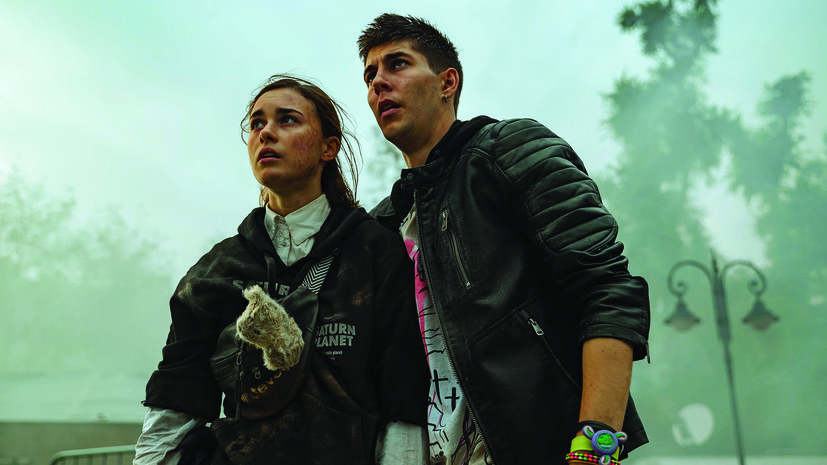On Thursday, December 22, the fantasy drama Mira is released in theaters.
The director was Dmitry Kiselyov, who previously made the film Londongrad.
Know ours, as well as some parts of the Yolki franchise.
Kiselyov turned to the space theme in 2017 while working on the film “The Time of the First” about the feat of cosmonaut Alexei Leonov, who was the first in the world to go into outer space.
In the new science fiction film, Kiselyov talks about the fragility of humanity with all its achievements in the face of the cosmic threat and, at the same time, about the strength of a person acting for the sake of loved ones.
The authors of the tape make it clear that the father is ready for literally anything to save the child.
Moreover, the idea is already read in the slogan of the film - "For a family, space is not a distance" (it's worth adding: there would be gadgets at hand).
According to the plot, in the near future, cosmonaut Arabov, who works at the Mira station, watches his 15-year-old daughter Leroy from orbit.
On Earth, the action takes place in Vladivostok, where Lera lives with her mother, stepfather and half-brother.
The father for the girl is just a voice from the tube.
She calls him by his last name, thus demonstrating that they have no emotional connection.
In life, Lera has a hard time: she doesn’t get along with her peers, she also doesn’t have close contact with her new family, and childhood trauma periodically makes itself felt.
In addition, she has to endure a brother who shares a room with her.
According to forecasts, a meteor shower is approaching Earth, which is quite safe for the planet and its inhabitants.
However, something goes wrong, and only a few minutes remain before the disaster.
Arabov, with the help of Mira's artificial intelligence, finds his daughter and gives her instructions on how to escape, instead of evacuating himself from the falling ship.
By the way, father and daughter are incredibly similar in their stubbornness, with which filmmakers try to explain even their most strange and inconsistent actions.
On the other hand, all this makes sense: where emotions and stress are involved, logic fades into the background.
This is easy to understand at the layman level, but in the movie I would still like to see a clear motivation, as well as the transformation of characters.
© Shot from the film "Mira"
Despite the inconsistency of the characters, all the actors do an excellent job with their tasks and are very organic in their images.
Anatoly Bely is especially brilliant in the role of a father, for whom neither his own life nor the mortal threat to humanity matter when his daughter is in danger.
With the help of Mira Arabov, he tries to save the girl's life by directing her movements.
Veronika Ustimova, who for the first time received a central role, also looks convincing in the frame next to such experienced artists as Daria Moroz and Maxim Lagashkin.
From a technical point of view, "Mir" is well done: the special effects are bright and exciting.
It is difficult to avoid comparisons with similar films such as Interstellar, Moonfall and Gravity, however, given the budget of films from previous years (from $100 to $165 million), such a comparison is unfair: the amount of costs for Mira is several times less — 540 million rubles (about $8 million).
At the same time, some decisions of the authors of the tape are a little upsetting.
While the theme is clear from the outset, drama is naturally inevitable.
But the writers are too obviously trying to manipulate the emotions of the audience, forcing them to cry, then laugh.
The whole thing is rather clumsy and reminiscent of a talk show when the lights turn on, suggesting moments for laughter or applause.
If we move away from dramatic flaws, in general, the picture manages to keep the viewer's attention, either plunging him into a family drama, or forcing him to worry about the characters from the bottom of his heart.
The action unfolds briskly and dynamically.
The finale of the picture is predictable, but until the last, hope for a miracle remains.
Probably the key message that the filmmakers were trying to convey is that the most important thing for a person is the family.
Nothing can stand between loved ones, even a huge distance.
Another central thought is technology, which has become an integral part of people's lives.
Smartphones, computers, smart speakers, a high-tech prosthesis - all this helps the characters not only stay in touch, but also literally feel the presence of a loved one.

